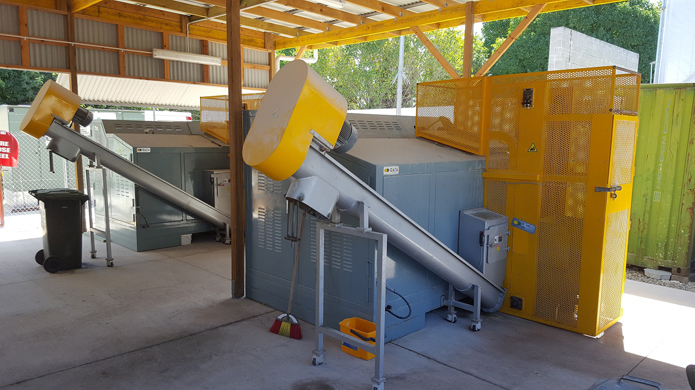Transforming food waste with a super composter
The problem
The amount of food wasted every day is a sobering thought. Supermarkets waste 200-400kg per day, hospitals 0.6kg per in-patient per day, restaurants 2.5kg per cover per week and stadiums 0.4kg per person per event. Households throw away 20 per cent of the food they buy, with four million tonnes discarded per year in Australia alone. In total, approximately 40 per cent of food that leaves the farm ends up as waste material.
Rotting food waste in landfill produces harmful greenhouse gases and pollutes water tables and waterways. Diverting two tonnes of food waste from landfill causes the same reduction in greenhouse gas emissions as taking a car off the road for a year.
The Broadspectrum team on Nauru estimated that it was disposing approximately 50-100kg of food every day. In such a remote location, with limited landfill space, this amount of food wastage could substantially impact on the local environment.
Our solution
To reduce this problem, the team installed a Gaia Recycleâ„¢ system to reduce its food waste volume. The system processes the waste and converts it into nutrient-rich organic fertilizer. It processes 360kg of food material per cycle in just nine hours. It does not require water, enzymes or sawdust and can run every day without downtime.
The organic fertiliser produced by the Gaia Recycleâ„¢ system is used on the facility's gardens and is also donated to the community for gardening programs. The Nauru team is diverting approximately 18.3 tonnes of food waste from landfill per year, reducing greenhouse gas emissions and simultaneously supporting the local community. A win-win situation for Broadspectrum, the environment and the community.
